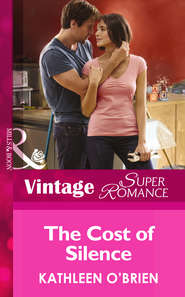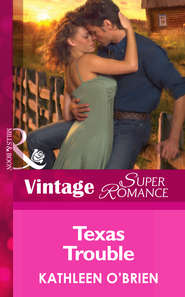По всем вопросам обращайтесь на: info@litportal.ru
(©) 2003-2025.
✖
The Saint
Автор
Год написания книги
2018
Настройки чтения
Размер шрифта
Высота строк
Поля
Mrs. Straine waved her hand. “We do not judge ourselves by everyone else, Miss Strickland,” she said. “At HGA, the standards are far higher.”
Higher than Shakespeare?
“I’m afraid we must insist that our teachers meet those standards. Every teacher, every day.”
So was this it? Was this where Claire would be told to take her copy of Hamlet and go home? She realized suddenly that she didn’t care very much. Since Steve died, she hadn’t cared about much of anything. But she tried to look earnestly concerned. She did have to earn a living, and HGA at least had the virtue of paying well and recruiting bright, well-behaved students.
“However,” Mrs. Straine went on, “I don’t think we need to overreact. Overall, your performance since coming to HGA has been exemplary. I think it will be adequate merely to place you on probation.”
“Probation?”
Mrs. Straine folded up the letter and placed it in a file marked Strickland, Claire. “Yes. It should not be construed as punitive. It’s merely precautionary. I’ll be keeping a close eye on your work. I’ll need to see your lesson plans daily, of course. After six months, we’ll review the matter and see where we stand.”
Claire understood she’d been dismissed. She stood and nodded—though she drew the line at thanking Mrs. Straine for her tolerance. She looked at the other woman—at her high, tight, extremely sophisticated French braid, her severe Armani suit, her Tiffany-set diamond wedding ring—and she wondered whether there really was no Mr. Straine, as the other teachers sometimes suggested.
It was possible. Claire’s own mother had pretended she was a “Mrs.,” and she undoubtedly wasn’t the only woman who did. Mrs. Straine’s reasons would be different, of course. She wouldn’t be trying to protect her two illegitimate children. But whatever the reason, living a lie took its toll.
As she left the school, Claire thought how much nicer it would be if she could go home and tell Steve about all this. What fun they’d have parodying Mrs. Straine’s Victorian syntax and ridiculous whisper. If Steve were there, this would seem hilarious in no time. They’d laugh away any sting, and then they’d sit around and think up absurd new meanings for the school’s initials. She could almost hear him now. Humongous Growling Amazons. Hippos Gathering Acorns. Hot Greasy Aardvarks.
But Steve wasn’t there, of course. Her half-furnished apartment would be empty when she finally got home later tonight. She had a meeting after school, which she would go through like a robot. Then she’d stop by the grocery store, and then drive to the apartment.
When she got in, she’d ignore the five or six messages on her machine—it was easier to ignore an invitation than to turn it down, and the result was the same in the end. She’d read a little. And then, as soon as she possibly could, she’d go to sleep.
To sleep. Perchance to dream. Yes, Hamlet knew where the real dangers lay. Claire still dreamed about Steve at least once a week. They were cruel dreams—the kind that woke you up with your heart in your throat. In the dreams, she always drove down Poplar Hill one second too late. Steve always died in her arms while Kieran McClintock stood over them and smiled.
But that night her meeting ran long and it was after ten before she got home. All in all, it had been an exhausting day. Maybe she’d be too tired to dream.
She pulled into the complex parking lot, gathered her books and papers and purse and groceries and made her way to her second-floor apartment.
And, there, on her elegantly lit landing, she came face-to-face with a man she had thought she’d never see again.
The smiling man of her terrible dreams.
CHAPTER THREE
KIERAN WAS SHOCKED by how different Claire looked. How much older.
He hadn’t seen her in two years, but still…
Part of it was her hair. She had beautiful hair, a deep, shiny brown. She used to wear it almost to her waist. When she taught, she just whisked it up into a casual twist that always had adorable bits and pieces escaping from it. Now it was cut in a sleek, chin-length bob that fit like a helmet.
And her outfit. It was the pencil-thin uniform of a corporate lady-shark. What had happened to the flowing cotton jumpers and soft pastel T-shirts?
But most of all, it was her face. Even in the worst days of her first grief, she hadn’t looked this tight and closed-in. Her brown eyes, round, large and long-lashed, had always reminded him of some gentle woodland creature.
Not any more. Now she just looked tired and strangely distant. She didn’t even seem interested enough to be shocked to see him standing on her front porch.
“Kieran,” she said. “What are you doing here?”
That was a damn good question, actually. What the hell was he doing here? Back in his hotel room, he’d told himself a thousand times to quit being such a fool, put down his car keys, order room service, raid the minibar, turn on the television, anything. But none of it had stopped him.
“I’m in town for a conference.”
She shifted her packages so that she could see him better over the groceries, but she kept her fist tightly closed around her keys. She seemed to have no intention of opening that door.
“Not here in Richmond,” she said. “I meant here. What are you doing here?”
“I wanted to say hello.” Was that true? Actually, he had no clear idea why he had come. He’d just opened the telephone book, found her name and found himself getting a map from his laptop. “I wanted to see how you were doing.”
She shifted again, her keys clinking against a glass bottle, or maybe a can. “I’m doing fine.”
No, you’re not, he wanted to say. Any fool could tell she was lost. But he didn’t have the right to say anything like that. Hell, he didn’t even have the right to be standing here.
One date. That was all they’d ever had. One night when he’d sat across from her, eating salmon and salad and some stupid little bonbon dessert, and quietly going wild with wanting her.
One night—compared to Steve’s death, for which she had always blamed him. No, he’d say he had pretty damn few rights in this situation.
“I just—” He cleared his throat and began again. “I thought maybe we could talk for a while. Maybe I could take you out for coffee. I haven’t eaten dinner yet. I just got into town. Are you hungry?”
She looked at him with those shallow eyes. “We don’t really have anything to talk about, Kieran. We don’t have anything in common except Steve. And I don’t talk about Steve.”
You don’t? Oh, Claire…that’s not healthy. But of course he didn’t say that, either. He just looked at her sober face in the silvery light from the carriage lamp and wished he could go back two years and start over. God, the things he’d do differently!
“It’s been two years, Claire. Isn’t it time to let old—” But her face warned him to stop, so he did. “All right, then, how about if I promise we won’t talk about Steve?”
Her fingers must have clenched a little. The brown paper bag made a brief crinkling noise. “What topics would be left, then? Politics? The weather?”
“I could tell you about Heyday. It’s grown since you left. They’ve put in a new multiplex movie theater. Stadium seating. Four whole screens. The kids all want jobs there.” She wasn’t interested, but he kept going, determined to hit on something. “The bookstore expanded. And they put in a new traffic light.”
“Did they really. Where?”
Oh, hell. He hesitated just a second too long, as he recognized his mistake. She was smart. She knew what the hesitation meant.
“Where?”
He took a deep breath. “On Poplar Hill.”
“So much for that topic.” She turned away firmly. “I don’t mean to be rude, Kieran. I appreciate the effort you made to come. But I really think it’s better if we just say good-night.”
She fumbled with her key, trying to insert it into the lock.
“Claire.” He touched her shoulder, and she twitched away quickly. Too quickly. The oranges on the top of her grocery bag began to teeter. She shifted them, reaching out with her other hand to try to balance things, but at that very moment the door swung open, and she lurched forward.
Fruit and fresh vegetables spilled everywhere, and a box of spinach spaghetti hit the landing with enough force to split open. Thin green straws hopped and tumbled crazily, covering the concrete and bouncing down the stairs.
He caught the bag as it fell, just in time to save the sparkling water.
She knelt immediately and began scooping up bits of broccoli. “I’ll get it,” she said. “It’s okay. I’ve got it.”











